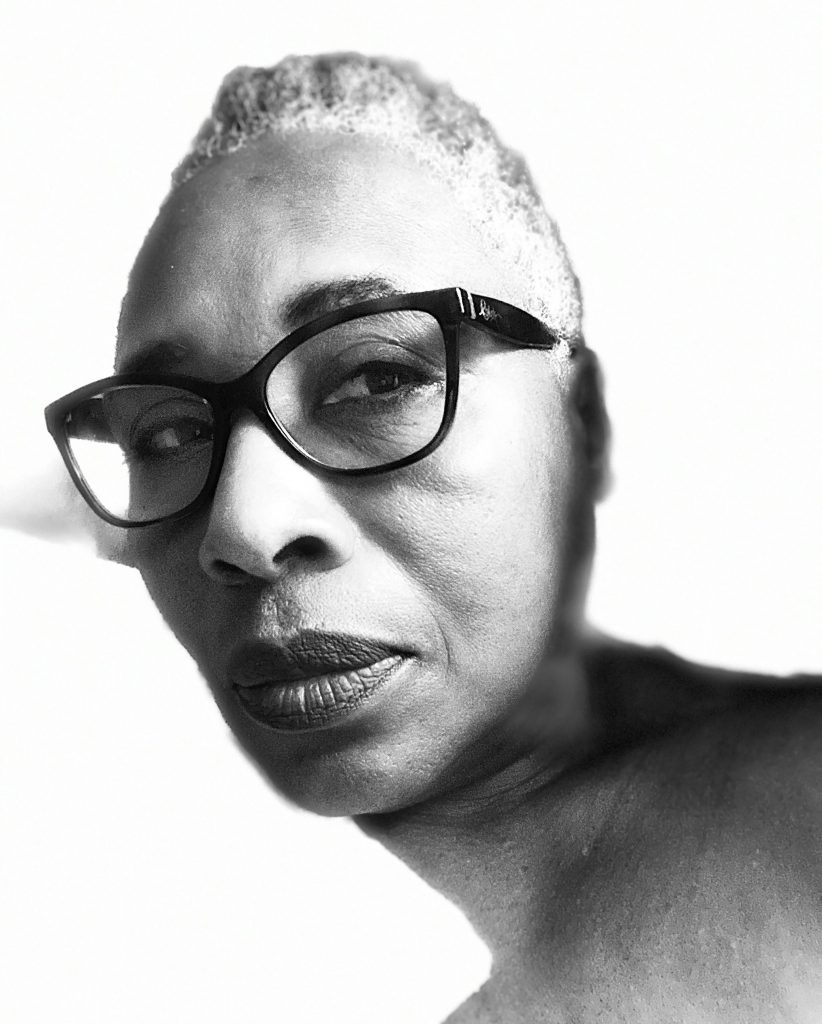
I met Rose Weaver at her home on the east side of Providence and we shared grown black women’s things — fear, insecurities, victories and joys. We laughed, scratched and spilled a little tea. What I most enjoyed about our conversation was the clear reflection of myself in her life story. I came away from our talk thinking about the Civil Rights Movement song by Joan Baez, “Ain’t Gonna Let Nobody Turn Me Around.” Rose kept on a’walking, kept on talking, marching down to freedom land. We had a real good time – and she had a glass of bourbon for me, which made me love her for free.
Dr. Rose Weaver has been taking off the mask and revealing the truth for decades through her arts practice and community activism. At 70 years young, she is the definition of black girl magic, and we are privileged to have her living among us in Providence!
Weaver was born in McDonough, Georgia, to sharecroppers, and “picked peaches” for 5 cents a bucket as a little girl. She described that childhood as the place where she loved the “smell of cotton” and the taste of the food. This was the place that informed her intense work ethic and love of nature. I think it also gave her the grit that she is able to reveal from the stage.
Weaver came to Rhode Island in April 1968 (just two weeks after Martin Luther King Jr. was assassinated) for her birthday to see another artistic powerhouse — Dionne Warwick — on the invitation of her fiancé at the time. She returned to Providence 5 months later, pregnant, and Trinity Repertory Company was prominently placed in her path. She saw her first play, Brother to Dragons, and thought, “I can do that,” Five years later, she was a member of the Company’s 1973, season. And what was her first production? Brother to Dragons. Amazing, right?
This is the magic that is Rose Weaver. In 1973, she was a single mother, raising a young son, working locally and in Boston on television, and creating a body of work that most of us can only dream about. She put her son through prep school and hosted a public affairs show on WJAR where she interviewed mayors and prominent business people. The show was called “Sunday, Sunday” (she claims that Al Roker must have seen the show).
She was also young, black and female, and could not buy a mortgage, despite her visibility and personal community outreach. This reminder of still being black can sting when you have success in other parts of your life.
Weaver contemplates further what it means to be black and what it means to be an artist. She says that she is tired of the word honorarium and having to justify her artistic fees. Her approach is to be proactive with these racial discrepancies. She is creating the Black Book Directory of Talent in Rhode Island so that she can explain the process of how being a black artist has a specificity and a cost. The hope is that this publication will help local organizations understand what an insult it is to tell the black artist, “Well, I didn’t expect that you were going to charge me that much?!”
This is the crux of the duality of Rose Weaver. If you look at just the artistry, you miss the community service — the time she spent working with Providence school children and donating time and energy to local arts organizations. This is why she has received so many Rhode Island accolades like the Pell Award and induction into the Rhode Island Heritage Hall of Fame, as well as honorary doctorates from Marymount Manhattan College, Providence College and Wheaton College.
I asked her about her legacy and what she wants people to say about her when she is gone. Her reply was humble and simple: “I want people to know that it was not all about me and that I tried to do some good work for my community, friends and family, and that I’m a good egg.” Rose Weaver is that and so very much more! I think she is magic!
April Brown is the program director of The Langston Hughes Community Poetry Reading, which is celebrating 25 years this month.


